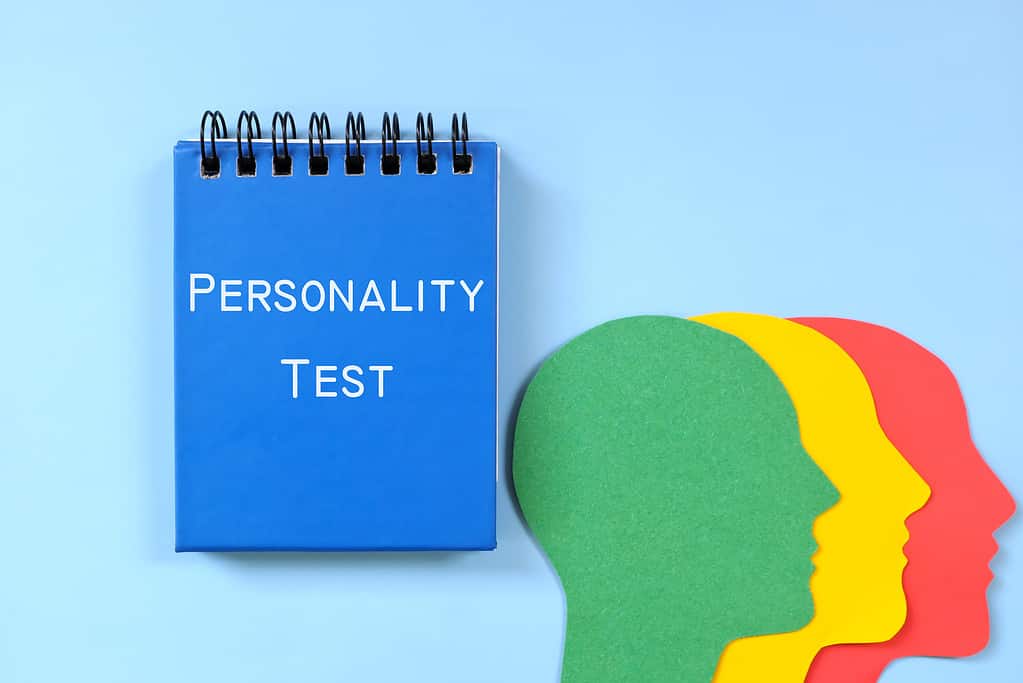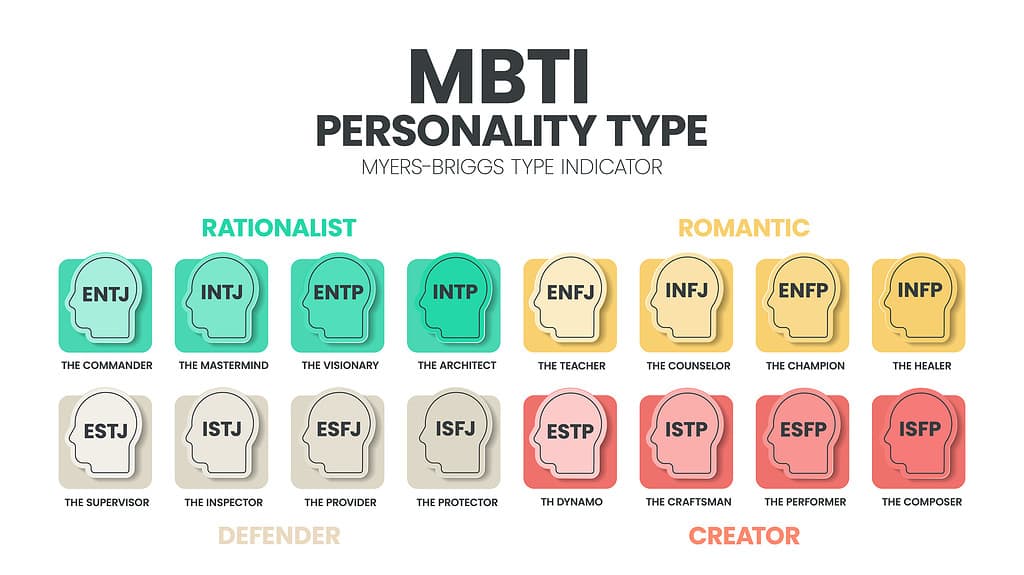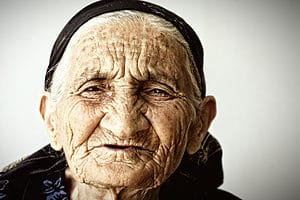
Various personality tests and typing systems are available, but the MBTI remains the most popular.
©Nadezhda Kurbatova/iStock via Getty Images
Personality tests are an interesting and fascinating way to learn about yourself. Although there are limitations to what a personality test can or cannot do, these tests can offer insight into who a person is and why they do what they do. There are dozens of personality tests and typing systems, each of which has a particular way of assessing and cataloging people’s types. For this particular article, we’re focusing on the Myers-Briggs Type Indicator (MBTI). You can expect to receive a brief history of personality tests and typing systems and an overview of personality types. However, our focus will be on the rarest personality type. Please keep reading to discover the rarest personality type in the world and the percentage of the population who has it!
History of Personality Tests

A mother-daughter team created the Myers-Briggs Type Indicator based on the theories of Carol Jung.
©John Kevin/iStock via Getty Images
Personality tests and typing often have a cult following. This means several skeptics don’t fully buy into personality typing systems. While personality tests can’t fully assess a person’s motivations and behaviors or perceive any nuance, these typing systems can provide a person with a starting point for understanding themselves. Of course, there are still complexities and limitations with personality tests.
Personality tests, with all of their controversy, actually date back to World War I. The U.S. Army wanted to attempt to predict which soldiers might end up suffering from “shell shock.” The test was designed to identify soldiers who were prone to nervousness, anxiety, or emotional breakdowns as a result of bombardment.
Despite the unfortunate origins, personality tests quickly gained notoriety. Today, personality testing is a multimillion-dollar industry, and the annual growth rate is estimated at more than 10%. Personality tests are used in hiring processes to improve workplace dynamics and help individuals identify a suitable career path. Workplaces use a variety of personality assessments for their employees: MBTI, DISC, Enneagram, and StrengthsFinder, to name a few. Based on this personality analysis, we focus on MBTI, its origins, and the rarest personality type.
History of the MBTI Assessment

There are 16 different MBTI combinations.
©robuart/iStock via Getty Images
The MBTI dates back to the mid-20th century with Katherine Cook Briggs and her daughter Isabel Briggs Myers, wanting to understand how people see the world differently. The inspiration all began with Isabel’s husband, Clarence Myers. Katherine was curious about how Clarence saw the world, as it differed from her perspectives and understandings. With her curiosity piqued, Katherine dove into research, eager to learn about personality variances.
The foundation of the MBTI Assessment emerges from the work of Carl G Jung’s 1921 work Psychological Types. Briggs saw many similarities between her understanding of personality types and Jung’s theories. With the onset of World War II, Briggs was prompted to create a type indicator that might encourage people to discover their personality types. She hoped that if people learned their psychological type, they might be better equipped to manage conflict.
After extensive research and mother-daughter collaboration, Isabel self-published Introduction to Type in 1962. The duo eventually developed the Myers-Briggs Type Indicator. The typing tool was made available to the public that same year when Educational Testing Services (ETS) published a version of the MBTI Instrument and the MBTI Manual.
Since then, MBTI has only continued to grow in popularity. It’s estimated that over 50 million have taken the test since the 1960s, which means it is one of the most popular personality assessments ever created.
The MBTI is based on four dichotomies:
- Extraversion (E) / Introversion (I)
- Sensing (S) / Intuition (N)
- Thinking (T) / Feeling (F)
- Judging (J) / Perceiving (P)
These preferences and perceptions combine to form 16 different personality types. The personality types are assigned a single letter from the four categories (Example: ENTJ).
16 Personality Types

MBTI is a self-report inventory designed to identify a person’s personality type and strengths.
©Chavapong Prateep Na Thalang/iStock via Getty Images
The four domains work out to create 16 personality types, each of which has a unique perception of the world. Then, these types are broken down into specific categories: Rationalists, Romantics, Defenders, Creators. Before we dive into the rarest personality type, here’s a quick overview of each type:
The Architect – INTJ
These individuals are imaginative, strategic planners.
The Logician – INTP
These inventors are always eager to learn more and acquire new knowledge.
The Commander – ENTJ
These natural leaders are bold and strong-willed, determined to find or make a way.
The Debater – ENTP
The smooth-talking, curious type who enjoys a good challenge.
The Advocate – INFJ
A quiet individual who is a perpetual idealist with big dreams.
The Mediator – INFP
The altruistic healer type who is eager to find a new cause to contribute to.
The Protagonist – ENFJ
The charismatic type who likes stealing the show.
The Campaigner – ENFP
The enthusiastic and bright free spirit who is perpetually optimistic.
The Logistician – ISTJ
These fact-minded individuals are reliable and practical.
The Defender – ISFJ
Warm protectors who will step up to defend their loved ones.
The Executive – ESTJ
These organized administrators excel at managing people and things.
The Consul – ESFJ
The exceptionally caring type who is always willing to help.
The Virtuoso – ESTP
The bold experimenter who is always eager to try new things.
The Adventurer – ISFP
The charming artist who is ready for new experiences.
The Entrepreneur – ESTP
The smart, perceptive individual who likes taking risks,
The Entertainer – ESFP
The spontaneous, enthusiastic type who wants to make life exciting.
Of course, this overview of the 16 MBTI personality types is brief, so if you want to learn more, you should take a test and research. Even more, researching might help you understand the genetic basis of personality types.
Nature vs. Nurture
No matter the personality test system, the idea of nature vs. nurture emerges. There is a significant amount of research that suggests that both nature and nurture impact the development of our personalities. In the past, most research explored the personality differences between adults; however, recent studies have looked at children and adolescents to determine best how and when personalities develop. In short, it is a complicated process to try and examine whether genetic makeup or upbringing is most likely to impact our personalities.
The Rarest Personality Type

The INFJ personality type makes up approximately 2% of the population.
©rommma/iStock via Getty Images
Since it is tricky to pinpoint whether personalities result from our genetic makeup or our childhood development and experiences, it can also be assumed that figuring out how and why a particular personality type is rare is complex. Some studies have shown that geography, culture, gender, and psychological phenomena can all impact personality types. What is currently considered the rarest personality type is based on numerous factors, each of which can fluctuate.
Overall, the rarest personality type is INFJ. The INFJ, if you recall, is the Advocate or Counselor, and this type makes up just 2% of the population. It’s also the rarest type among men. Approximately 56% of INFJs are women and 44% are men.
INFJ stands for Introversion, Intuition, Feeling, and Judging. According to various findings, this particular combination is unique to find. Those who identify as INFJ are typically naturally intuitive, highly empathetic, and keen to help others. They’re also gentle, quiet, and modest. Even though they’re introverts, they still prioritize connecting with others.
This personality type is considered rare because of the paradoxes of the categories. INFJs enjoy being around people, often described as “extroverted introverts,” yet they can retreat quickly. Their personality is a push and pull between extraversion and introversion, stoic and emotional, logical and creative, and pessimistic and optimistic. Some people have described INFJs as walking contradictions because of their paradoxical nature.
Top Rarest Personality Types

Culture, geography, and gender are contributing factors that can affect personality type.
©pcess609/iStock via Getty Images
1. INFJ
As discussed, INFJ is the rarest personality type in the world, with nearly 2% of the population identifying as this type.
2. INTJ
INTJs, also known as The Architects, are the second-rarest personality type. INTJs make up less than 2% of the population. It is one of the least common personality types among women.
3. ENTJ
The opposite of the INTJ, the Commander, can be found in approximately 3& of the population. About 3% of men identify as ENTJs, while only 1% of women do.
4. ENFJ
The fourth-rarest personality type is ENFJ. The Protagonist is considered to be the second rarest personality type among men.
5. ENTP
The fifth rarest personality type is ENTP, the Debater, found in 3% of the general population. It is slightly more common in men than women.
Understanding the Rarest Personality Types
Looking at these personality types, there are some patterns. This group of personality types is prone to intuition over sensing and judging over perceiving. In summation, the rarest types might have more abstract ways of thinking while appreciating order and structure.
Summary of the Rarest Personality Type
Based on various research and findings, the rarest personality type in the world is the INFJ or the Advocate. INTJ, ENTJ, ENFJ, and ENTP closely follow this type. Studies can both speculate and assess how and why personalities are rare, but overall, the development of personalities seems to be most related to geography, culture, and gender. The most popular and rarest personality types can also change as cultural standards shift and evolve.
That might be part of why personality typing systems are so popular. These systems give language to certain behaviors and motivations that people might not otherwise have. With that, the ebbs and flows of culture and society inform who we are and how we respond. So, INFJ might be the rarest personality type now, but it may change as the world around us changes.
Personality types are complex and multifaceted, but they provide a rich understanding of human interaction and relationships. Because INFJ personality types are so rare, it speaks to the variance and uniqueness of the human experience. Hopefully, this article enlightens you no matter your personality type, encouraging you to extend empathy to others and think critically about the world around you.
The photo featured at the top of this post is © pcess609/iStock via Getty Images
Thank you for reading! Have some feedback for us? Contact the AZ Animals editorial team.






